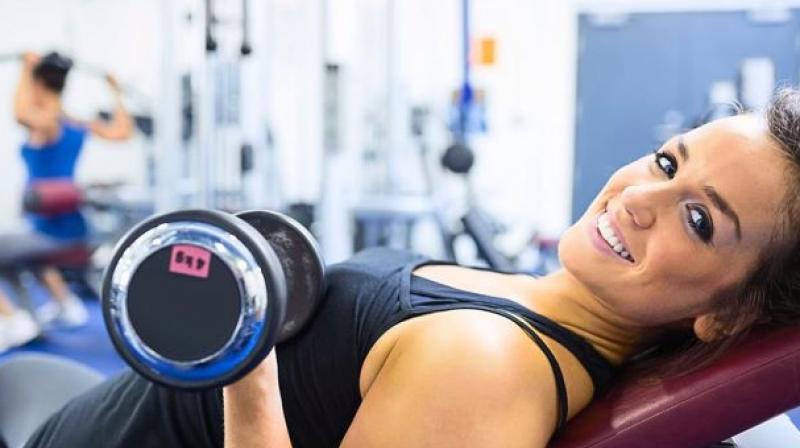Menstrual cycles have no impact on physical training and performance: study

Washington: A recent study, published in the Journal of Physiology, has found that doing fixed intensity exercise during menstrual cycle does not affect a woman's autonomic heat responses (skin blood flow and sweating).
That's according to a collaboration between Massey University, the University at Buffalo and the University of Otago. They also found that exercise performance was impaired by humid heat due to the reduced ability of the body to sweat effectively.
The research studied the effects of heat on ten well-trained women across their menstrual cycles. Each woman completed four trials comprising of resting and fixed-intensity cycling followed by a 30-minute variable-intensity performance trial. The trials were conducted in the early-follicular (days 3-6) and mid-luteal (days 18-21) phases of their menstrual cycle in dry and humid heat environments.
Dr Toby Mandel from Massey University and co-author of the study said "This study indicates that trained women self-pace to minimise autonomic differences (skin blood flow and sweating) but at the expense of their exercise performance under humid heat stress.
One in two competitive women believe that their menstrual cycle negatively impacts training and performance; however, these results question the assertion made by previous researchers that women should avoid competition or face a disadvantage when performing exercise with heat stress during their luteal phase."
Upcoming international events such as the 2018 Commonwealth Games will expose athletes to high levels of environmental heat making understanding how the body responds to these conditions of high interest and relevance. Of the limited studies that have investigated how females respond to such heat stress none can explain how a well-trained, competitive woman will respond and perform.
Due to the proportion of competitive women that take the oral contraceptive pill it remains to be investigated whether these athletes differ in their response and performance in hot and humid environments.

